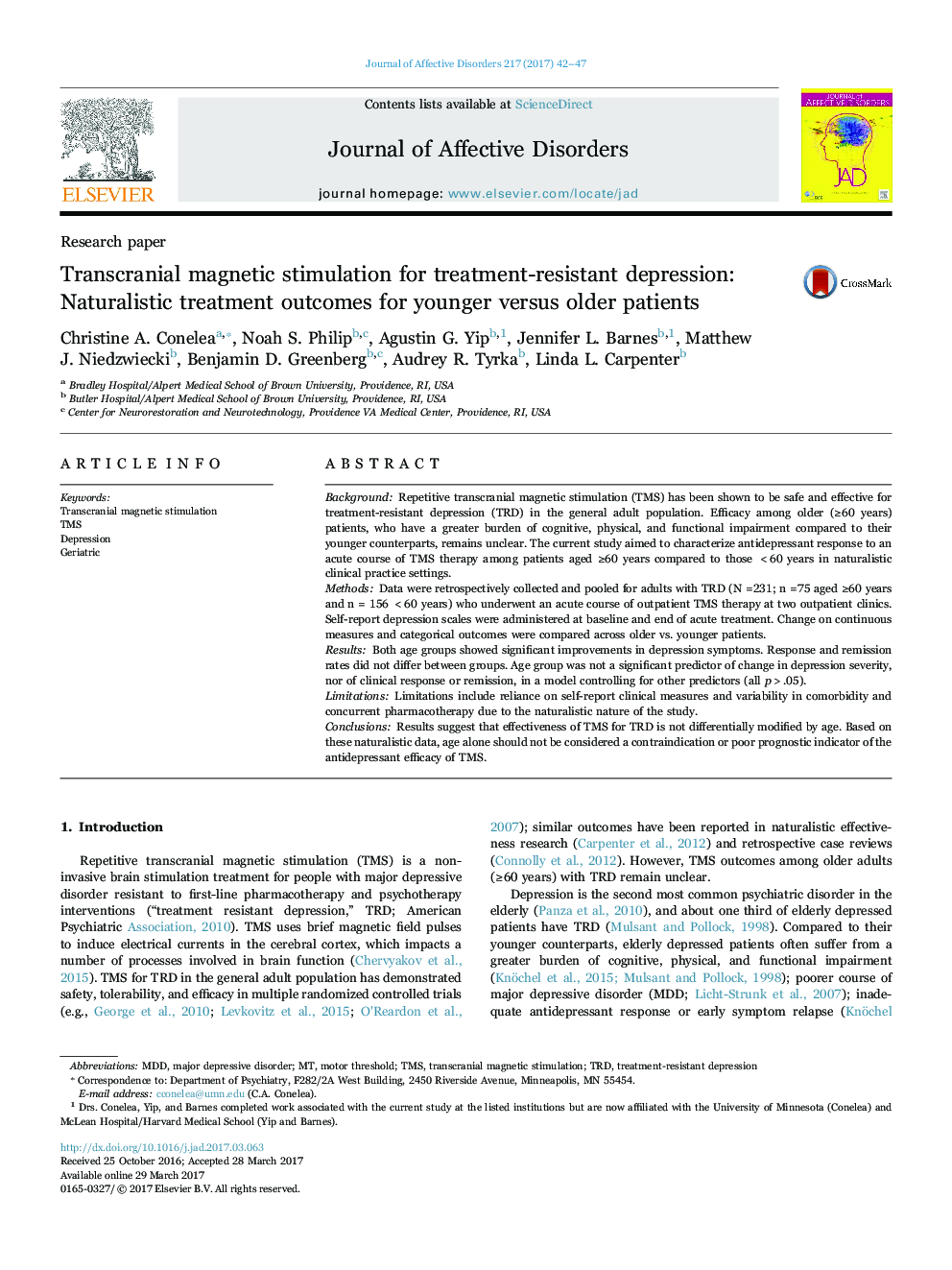| کد مقاله | کد نشریه | سال انتشار | مقاله انگلیسی | نسخه تمام متن |
|---|---|---|---|---|
| 5722179 | 1608108 | 2017 | 6 صفحه PDF | دانلود رایگان |
- Transcranial magnetic stimulation (TMS) is effective for treatment-resistant depression.
- Efficacy among older (â¥60 years) depressed patients remains unclear.
- Response to an acute course of TMS therapy was measured in a clinical practice setting.
- Depression response and remission rates were similar across younger vs. older patients.
- Results suggest TMS effectiveness for depression is not differentially modified by age.
BackgroundRepetitive transcranial magnetic stimulation (TMS) has been shown to be safe and effective for treatment-resistant depression (TRD) in the general adult population. Efficacy among older (â¥60 years) patients, who have a greater burden of cognitive, physical, and functional impairment compared to their younger counterparts, remains unclear. The current study aimed to characterize antidepressant response to an acute course of TMS therapy among patients aged â¥60 years compared to those <60 years in naturalistic clinical practice settings.MethodsData were retrospectively collected and pooled for adults with TRD (N =231; n =75 aged â¥60 years and n = 156 <60 years) who underwent an acute course of outpatient TMS therapy at two outpatient clinics. Self-report depression scales were administered at baseline and end of acute treatment. Change on continuous measures and categorical outcomes were compared across older vs. younger patients.ResultsBoth age groups showed significant improvements in depression symptoms. Response and remission rates did not differ between groups. Age group was not a significant predictor of change in depression severity, nor of clinical response or remission, in a model controlling for other predictors (all p>.05).LimitationsLimitations include reliance on self-report clinical measures and variability in comorbidity and concurrent pharmacotherapy due to the naturalistic nature of the study.ConclusionsResults suggest that effectiveness of TMS for TRD is not differentially modified by age. Based on these naturalistic data, age alone should not be considered a contraindication or poor prognostic indicator of the antidepressant efficacy of TMS.
Journal: Journal of Affective Disorders - Volume 217, 1 August 2017, Pages 42-47
